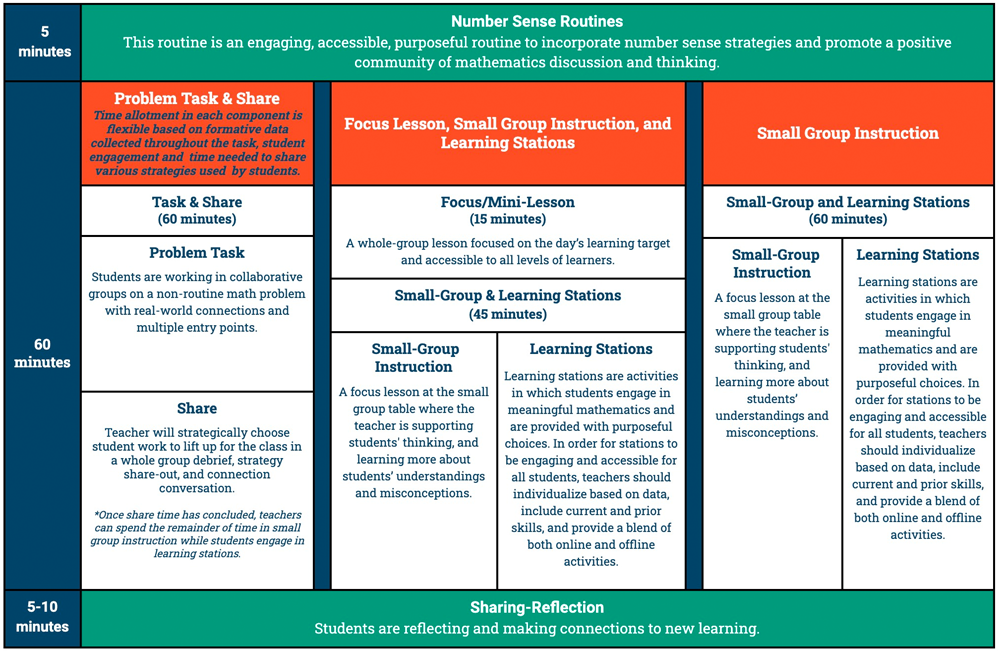Frisco ISD Instructional Model
In Frisco ISD, elementary teachers will use the workshop model with a variety of three structures to teach math instruction.

Each structure should be chosen based on classroom data, and contain some consistent components throughout all three. Below you will find a description of what these components mean in Frisco ISD.
Number Sense
-
A number sense routine is an engaging, accessible, purposeful routine to begin your math class that promotes a community of positive mathematics discussion and thinking. Number sense is addressed and spiraled throughout the year during daily number sense routines. The numeracy activities should be rotated and varied in the mode delivered based on data.
Problem Task
-
Students are working in collaborative groups on a non-routine math problem with real-world connections and multiple entry points. Teacher will strategically choose student work to lift up for the class in a whole group debrief, strategy share-out, and connection conversation.
Focus/Mini Lesson
-
A whole-group lesson focused on the day’s learning target and accessible to all levels of learners.
Small Group Instruction
-
A focus lesson at the small group table where the teacher is supporting students' thinking, and learning more about students’ understandings and misconceptions. These flexible groups are based on specific student needs and change often based on data.
Stations
-
Learning stations are activities in which students engage in meaningful mathematics and are provided with purposeful choices. Students spend the majority of the math workshop block applying learning in independent and group settings. In order for stations to be engaging and accessible for all students, teachers should individualize based on data, include current and prior skills, and provide a blend of both online and offline activities. Teachers can utilize the following templates to help organize stations to best fit the needs of their classroom.



